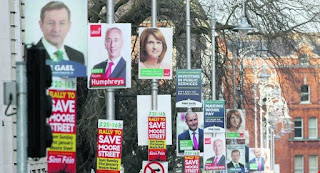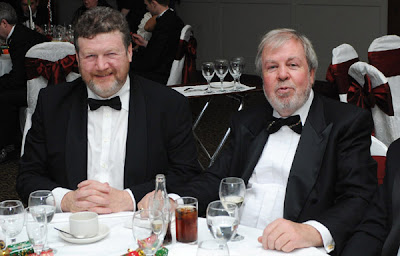 |
| Deputy Gino Kenny |
Deputy Gino Kenny’s Dying with Dignity Bill is due to go before the Dáil this week. It should be opposed for two reasons – the floodgate effect, and what such a bill says about the very nature of life itself.
The Floodgate Effect
Most conservative objections to liberal social legislation are based on floodgate effects. This is because all legislation has a floodgate effect. If it didn’t, what would be the point of it?
The Dying with Dignity Bill contains a number of provisions to limit this floodgate effect. A “qualifying person” must be diagnosed as suffering from a terminal disease with no hope of a cure by two separate medical professionals. There must be a treatment paper trail. A qualifying person must be judged mentally capable of making the decision to die. There will be provision made for conscientious objection by medical professionals. And so on.
Immense cultural taboos towards taking life before its natural end currently exist. For all the horrors of death – and they are many – very few people step forward to put a pillow on the face of the dying and hurry things along.
We all tell each other how we’ll eat a bullet before suffering the indignity of being a bedridden, senile incontinent in a nursing home. Everyone nods their head when that comes up in discussion. And yet the western world has this year shut itself down to protect the lives, among others, of those same bedridden, senile incontinents. Isn’t there a certain inconsistency in that? Are we really sure we know what we’re doing here?
If this bill, or a bill like it, were passed and a similar pandemic were to arrive a generation or two later, there wouldn’t be any debate at all about what to do with the nursing homes. Once the taboo is broken and the years go by, the constraints are lifted, one by one, because their original impulse, the deep-seated taboo, no long exists.
Succeeding generations will be puzzled to know what all these obstacles are doing in what should have been perfectly straight-forward legislation. Look at this ridiculous two-doctor rule. If I need a tooth pulled, I don’t know two dentists to tell me, do I? What about the qualified person being in full awareness of the decision? For goodness sake, surely if you’ve lost your marbles, you’re more or less dead already, aren’t you? What were these people thinking in 2020?
The Fundamental Irrationality of Life
The current age – which has been the current age since Pierre Beaumarchais staged the Marriage of Figaro at the Comédie-Française in Paris in 1778, for what that’s worth – sees itself as the age of science. There are no ghosts in the machine. There is, and there ain’t. With apologies to Wittgenstein, what is, is, and what ain’t, ain’t. It is unfortunate to take so unsubtle a position with regard to so messy a proposition as life, and society, and humanity. It can lead down strange paths.
Some of the great scientific minds of the first half of the Twentieth Century were eugenicists. Two of the founding fathers of modern statistics, Sir Francis Galton and Sir Ronald Fisher, were eugenicists. They had read their Darwin (Galton and Darwin were related) and done their sums. What was the point in human progress being held back by, to borrow a phrase from a movie, too many goofy bastards in the herd?
The eugenics movement never recovered from the Allies’ entry into the Ohrdruf concentration camp in April 6th, 1945. It’s one thing to talk about eugenics and tidying up the race while enjoying a glass of port after a five-course dinner. It’s quite another to see that race-tidying process industrialised as the Germans, that nation of engineers, had done.
Science favours controlled breeding. How could it not? There are no rational arguments against it. Only the sentimental. And yet it is sentiment that makes us human in the first place, is it not? Just how rational is the human animal anyway?
Our only certainty in life is death. Whoever you are, where-ever you are, whether you are a man or a woman, rich or poor, tall or short, you will die. It’s only a question of when.
What, then, is the point of living? What is the point in knowing that all you have will be left behind you, in knowing that every day brings the end closer, that every day after your peak you have declined by that little bit more, until that poor bastard in the nursing home wearing the diaper is your own sweet self? The very act of living exists in defiance of rationality itself.
It’s the easiest thing in the world to get dead. People die all the time. They’re here, and then they’re not, and they are never coming back, ever, not even for a glimpse on the side of a hill in the distance. Gone.
And yet, for reasons that are not rational, that do not balance on both sides of the equation, people fight for life with tooth and claw. All the damned in the war zones of the world, in Yemen, in Syria, in South Sudan – why do they cling to life as they do? Where is the kindness in allowing them to suffer so when their end is inevitable? Wouldn’t it be kinder for the West to come along and assist them into the Undiscovered Country?
Cultural taboos are to the social sciences what Schrödinger's cat is to physics. All very explicable in theory but when you go looking for the actual thing itself it proves very damned hard to pin down. Physicists have been searching for that damn cat for ninety-five years, and have yet to find a single whisker. We change what we do not understand at our absolute peril.
FOCAL SCOIR. Some people do not need assistance to commit suicide. Some people are every day aware that the means of their escape is in their own hands. The big thing to remember here, and the point I think that’s being missed by this bill, is that suicide only looks like an escape. It’s not really. An exit door is only ever an exit door. It’s always better to stay in the ring, because it can’t rain every day. It just can’t. If life is hanging heavy with you these days, it’s no harm to give the Samaritans (https://www.samaritans.org/ireland/samaritans-ireland/) a shout. You can call them at 116 123 twenty-four hours a day, whenever suits. They’d love to hear from you.












